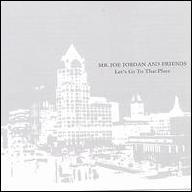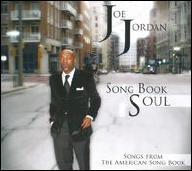Joe Jordan
from Cincinnati, OH
February 11, 1882 - January 1, 1971 (age 88)
Biography
Born in Cincinnati, Joe Jordan came up in St. Louis and received musical training at the Lincoln Institute in Jefferson City. In 1900, young Jordan performed as fiddler and percussionist with the Taborian Band of St. Louis. He also appeared with Tom Turpin, Sam Patterson, and Louis Chauvin in a singing four piano act. In 1902, he went to New York to collaborate with Ernest Hogan, known in show business as the "Unbleached American." At the beginning of the 20th century, the rapidly developing U.S. entertainment industry was largely founded upon the exploitation of ethnic stereotypes. Hogan's big hit was called All Coons Look Alike to Me, and the stage show that he and Jordan cooked up was called "Rufus Rastus." Another example of the prevalent racial thematic was Dandy Coon, created by Chauvin and Patterson in 1903. Jordan stage managed and directed the music for this bit of minstrelsy, which toured with a cast of 30 including a "beautiful octoroon chorus." When the show disintegrated in Des Moines, Jordan made for Chicago. He began performing at the Pekin, a former casino/saloon at 27th and State that had been converted into a beer garden by Robert T. Motts. Jordan commemorated this hot spot with the Pekin Rag, published in 1904. He briefly returned to St. Louis in order to play the Faust Restaurant at the 1904 World's Fair. Now known as an expert at lickety-split orchestration on demand, Jordan returned to New York in 1905 to work with Ernest Hogan and James Reese Europe organizing and directing the Memphis Students, a group of 17 African-American men and women who were not students. Nor were they from Memphis. Their premiere appearance was at Proctor's 23rd Street theater in the spring of 1905. James Weldon Johnson said that this "playing-singing-dancing orchestra" was "the first modern jazz band ever heard on a New York stage." Instrumentally, the ensemble contained saxophones, brass, banjos, guitars, mandolins, piano, and drums. Later in 1905 they played Paris, London, and other major European cities. Jordan composed Rise and Shine, Oh, Liza Lady, Goin' to Exit, and Dixie Land for this group. He also came out with the J.J.J. Rag. Back in Chicago, Motts' establishment was developing into an all-purpose entertainment center, known locally as the Pekin Temple of Music. In 1906, Motts expanded his operation by erecting the Pekin Theatre right on top of the existing "Temple." With the opening of the revised and enlarged Pekin (one of America's first African-American-owned theaters) on March 31, 1906, the Negro District of South Side Chicago began to transform itself into a launching pad for the jazz explosion of 1915-1925. Jordan conducted the 16-piece house orchestra and served as composer and musical director, all for a weekly salary of $25.00. Increasing his involvement with the scene in New York, Jordan wrote a couple of songs for Ada Overton Walker; first Salome's Dance and then in 1909, That Teasin' Rag, the latter's main theme was swiped and used by the Original Dixieland Jazz Band on their 1917 recording, The Original Dixieland One Step. When Jordan heard the record, he filed a lawsuit. All of the platters were recalled, and the labeling was changed to include the phrase "introducing 'That Teasin' Rag' by Joe Jordan." Also in 1909, Jordan collaborated with Bob Cole and Rosamond Johnson on Red Moon, a Broadway operetta which broke Jim Crow convention by having persons of color perform serious romantic songs, expressing realistic human emotion. This was something apparently not permitted, especially outside of New York City. In 1910, Jordan wrote Lovie Joe for Fanny Brice. Barred as a black man from entering the theater where Brice premiered the song, Jordan stood outside on the pavement and wept when he heard the public demanding eight encores. Jordan went to Germany in 1911 with King Bailey's Chocolate Drops. On his way back, he performed his way through England. Landing at the Pekin once again he resumed his duties there for about three years. His songs dating from this period include Dat's Ma Honey Sho's Yo' Born, Oh Say Wouldn't It Be a Dream, and Brother-In-Law Dan. He did very well in Chicago's real estate market, and in 1917, the J. Jordan Building was erected at the corner of 36th and State. In 1918-1919, he was assistant director and financial advisor for Will Marion Cook's New York Syncopated Orchestra. In 1928, Jordan conducted a band made up of Jabbo Smith, Garvin Bushell, James P. Johnson, and Thomas Fats Waller in the musical revue "Keep Shufflin'." Jordan's touring band was called the Ten Sharps and Flats. He conducted the Federal Theatre Project's Negro Unit Orchestra in New York during the '30s. In 1936, Jordan worked with James P. Johnson, Porter Grainger, and Asadata Dafora providing music for a Federal Theatre Project production of Shakespeare's +Macbeth staged by Orson Welles. In 1939, Jordan led a symphony orchestra augmented by a 350-voice chorus at Carnegie Hall. He composed songs in collaboration with W.C. Handy, led military bands during WWII, and settled into years of successful real estate in Tacoma, WA where he passed away on September 11, 1971. ~ arwulf arwulf, Rovi
Top Tracks
Albums
Videos
Close



















